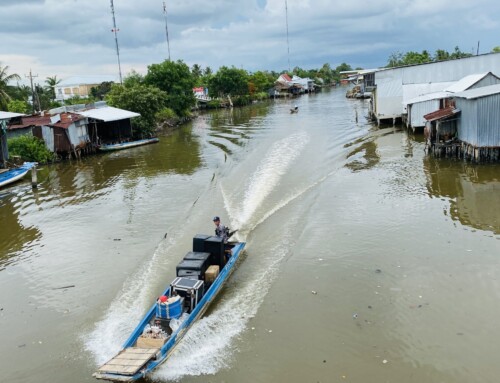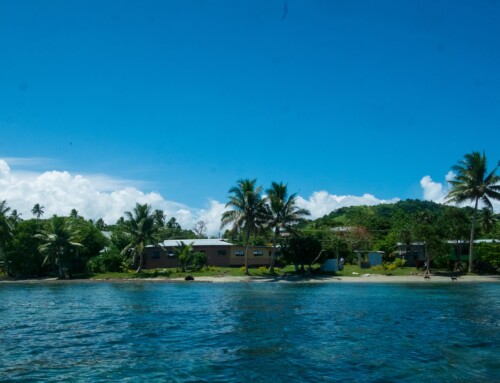Hanoi, Vietnam – May 25, 2017: Project to demonstrate effective bioengineering application in northern Vietnam draws to a close
After over four years, the ADB Capacity Development Technical Assistance project Promoting Climate Resilient Rural Infrastructure in Northern Vietnam has drawn to a close. The recent final workshop was used as an opportunity to review the project outputs and explore a way forward, including the identification of entry points and next steps for using the project outputs to mainstream bioengineering in Vietnam.
The objective of the project is to increase resilience of infrastructure in the northern provinces of Vietnam. It has demonstrated how non-conventional engineering solutions can strengthen rural infrastructure, resist the hazards associated with climate changes and provide opportunities to enhance community livelihoods. The project focuses on bioengineering as a low-cost alternative to conventional slope stabilization and protection techniques.
The project has centred on testing various measures and tools for assessment, design, construction and monitoring of cost-effective climate resilient bioengineering-focused works at five locations in four sites, across three provinces in northern Vietnam (Bac Kan, Son La and Thai Nguyen). Two of the demonstration sites focus on riverbank slope protection, while the remaining two focus on roadside slope protection.
The final workshop took place in Hanoi on 5 May, and brought together project team members, representatives from the target provinces and communes across the four project sites, and national government representatives.
“It is imperative that climate change adaptive action is a key component of development going forward,” said UNDP Project Advisor, Ms. Jenty Kirsch-Wood. “The cost of adaptation will be huge, and the numbers are staggering. Without effective action, sustainable development will be more difficult. This project is about methods of mainstreaming effective adaptation into government cycles, focusing on low-cost, low-regret methods. These are important elements of effective adaptation.”
Technical Trainer and Geotechnical Engineer, Dr. Jasper Cook said, “This is the only demonstration project in Southeast Asia that is doing this type of work, and it is generating much interest at national and local levels. It is vital that the lessons and methods of the project be disseminated and picked up as standard practice throughout Vietnam.”
Much of the discussion at the workshop focused on the need for bioengineering norms and standards for Vietnam. Participants also highlighted the need for more research in applying a diversity of bioengineering methods in differing environmental conditions, and the importance of training and capacity building.
ICEM Director General, Dr. Jeremy Carew-Reid, emphasized the necessity of three elements for the project results to be taken forward. First, to establish a special unit or task force of senior technical representatives with a mandate and budget to develop bioengineering regulations and standards; second, for the Ministry of Agriculture and Rural Development (MARD) to commit an annual budget to continuing testing and bioengineering methods; and third,to expand the network of bioengineering demonstration and training sites across the country.
Dr. Carew-Reid pointed out that most conventional infrastructure can benefit from bioengineering components. “Though we are still at a testing stage, regulations should require planners and engineers to consider how bioengineering measures can strengthen or replace conventional infrastructure.”
In conclusion, he reminded participants of the wider benefits of the project. He said that while we are making infrastructure safer and more resilient, bioengineering and nature based solutions are important for achieving multiple uses and for improving community quality of life. “We are trying to bring nature back to our development, and into our lives.”
– Download the Final Workshop presentations
– Read more news on the ADB component of the Promoting Climate Resilient Rural Infrastructure in Northern Vietnam project
– View ICEM’s project documentary on green infrastructure, Bringing Nature Back
– See more ICEM projects relating to nature-based solutions and green infrastructure









Leave A Comment